
Detecting and treating schistosomiasis: how projects and partners work together to protect the most vulnerable
Partnering to treat schistosomiasis in preschool-age children

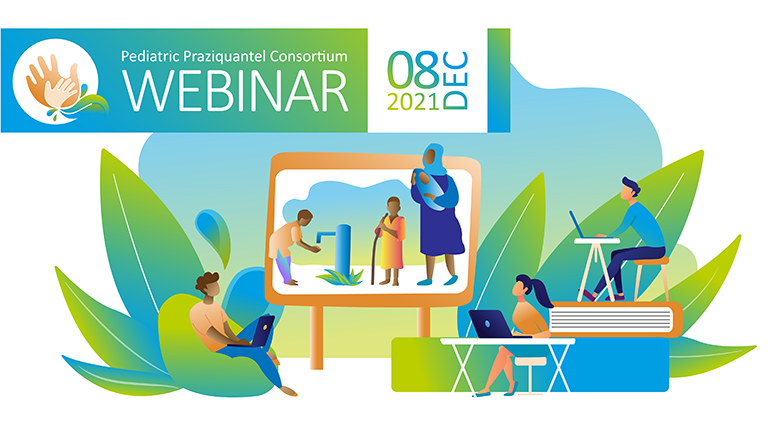


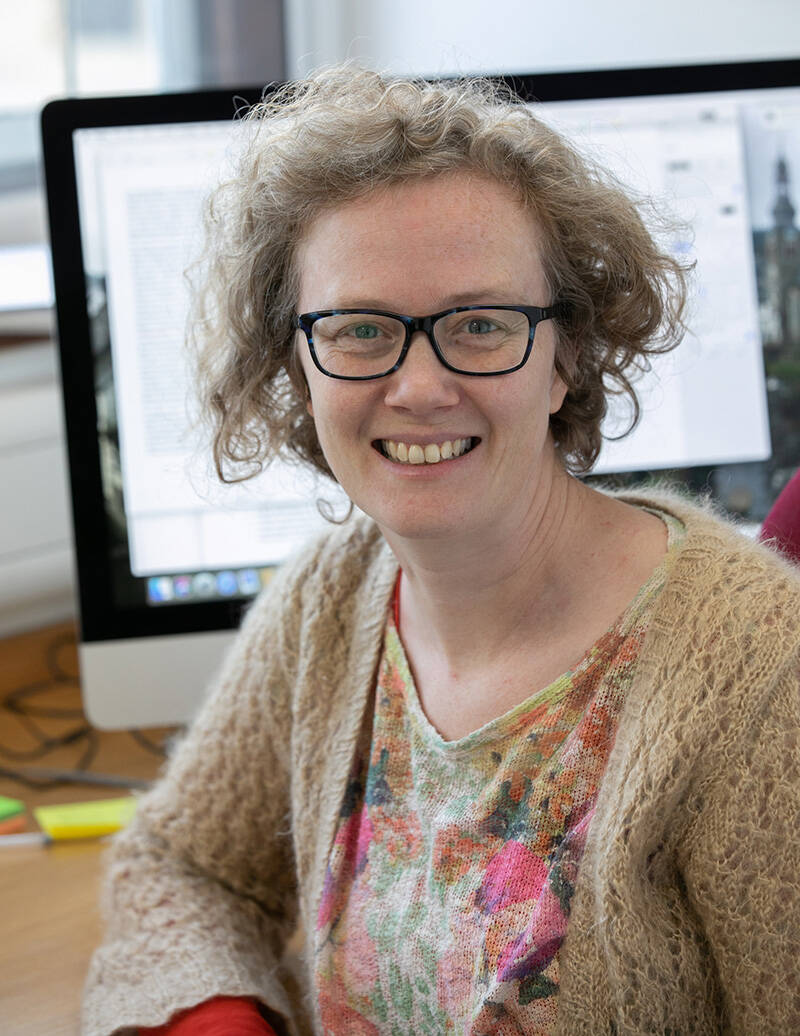
“Using more advanced methods of diagnosis and disease mapping in schistosomiasis-endemic countries, it has become increasingly evident that large population groups at risk remain untreated resulting in continuing transmission and morbidity. Combining accurate and affordable diagnostic methods with the correct use of praziquantel in individuals who carry the highest risk is essential to further reduce the disease burden. In freeBILy, very young, preschool-age children were shown to carry schistosome infections requiring adequate treatment, for which the availability of a paediatric drug formulation would have been highly essential.”
— Dr Govert van Dam, freeBILy Project Coordinator
“Despite many years of treatment-based disease control implementation, there remain areas of dangerously high schistosomiasis transmission. By the time children access school-age praziquantel treatment programmes, the burden of infection can easily surpass levels that leave them vulnerable to subtle, life-chance altering morbidities, and with time, life threatening severe schistosomiasis. The potential new praziquantel paediatric formulation provides us with an extremely important tool with which to halt the progress of schistosomiasis amongst the youngest members of these communities; one to be used alongside enhanced school-based strategies, such as those being investigated by FibroScHot, and wider community strategies.”
— Dr Shona Wilson, FibroScHot Project Coordinator
Through its neglected infectious disease portfolio, EDCTP has awarded € 14.89 million to support 12 projects on schistosomiasis. Development of drugs and diagnostics is a priority, along with strengthening health systems. Several projects focus on or include preschool-age children, including:
Through its five-year ADOPT programme, funded by EDCTP and the GHIT Fund, the Consortium aims to identify approaches to ensure widespread acceptance and equitable access to its pediatric treatment across endemic countries. To this end, the programme considers aspects ranging from social mobilisation and acceptance by the communities, to the assessment of existing drug delivery strategies and setting up monitoring and evaluation frameworks. The ADOPT programme will provide evidence on feasibility, acceptability, costs, efforts and impact associated with the new paediatric treatment. Country leadership will be key to the success of this programme, as the national Ministries of Health will lead the implementation programmes, thus linking to the WHO Roadmap for neglected tropical diseases 2021-2030, promoting country ownership.
We asked Dr Beatrice Greco, Head of R&D and Access at Merck’s Global Health Institute and member of the Pediatric Praziquantel Consortium Access team, about the consortium’s innovative approach to ensure equitable access to its treatment for preschool-age children.
Watch a recording of a Pediatric Praziquantel Consortium webinar, held on 8 December 2021, to celebrate the completion of the Consortium's pivotal Phase III trial of arpraziquantel.
WHO recommends large-scale treatment of preschool-age children (PSAC), who are a high-risk group for schistosomiasis. However, to date, no suitable paediatric medication is available to treat this group of patients. Currently available praziquantel tablets can be crushed but dosing is a problem, and the bitter taste of the product makes it very difficult for preschool-age children to swallow. Recent results from an EDCTP-funded phase III clinical trial of arpraziquantel, a potential new paediatric treatment option for schistosomiasis, offers hope for this particularly vulnerable group.
The Pediatric Praziquantel Consortium, a not-for-profit international public-private partnership, set out to develop, register and make available a potential new drug, arpraziquantel (a single-dose orally disintegrating tablet (ODT) 150 mg formulation), that could be used to treat the estimated 50 million preschool-age children suffering from schistosomiasis. This is a groundbreaking initiative on multiple levels, using an innovative Research & Development operating model, and advanced technologies in all aspects of product development and delivery – from chemistry to clinical trials and manufacturing, and from registration to access and implementation.
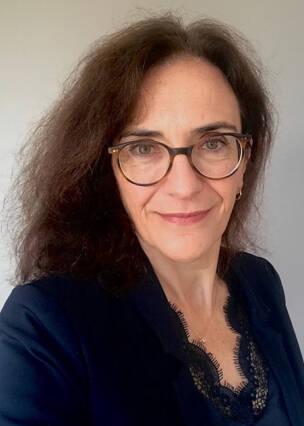
Head of R&D and Access, Global Health Institute, Merck
Dr Béatrice Greco
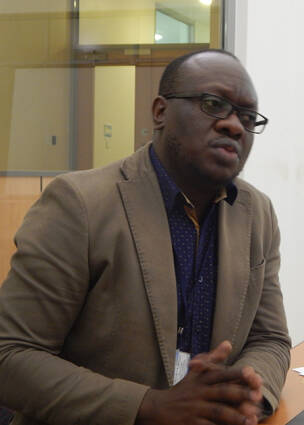
Principal Investigator of the phase III clinical trial in Kenya
Dr Maurice Odiere

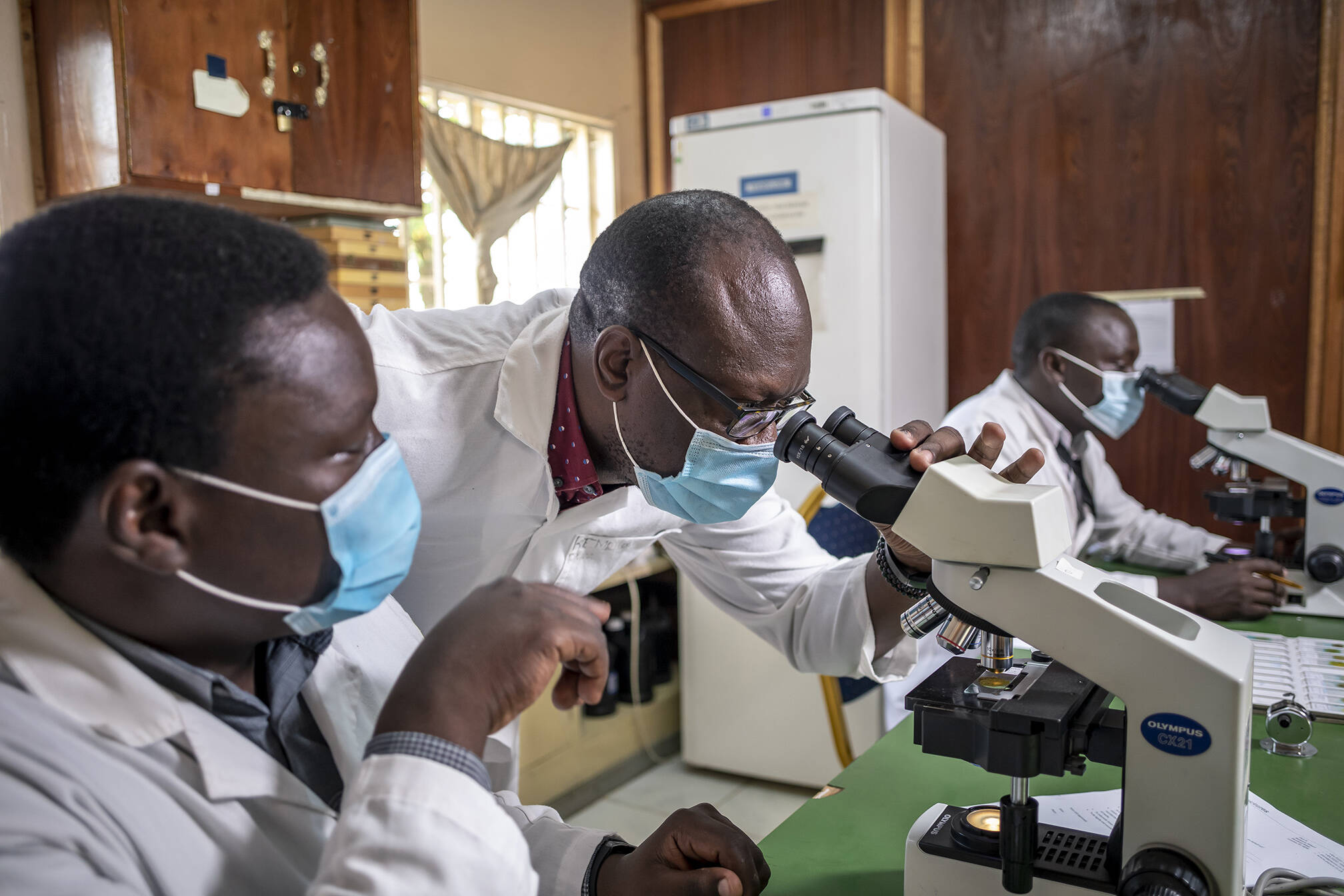
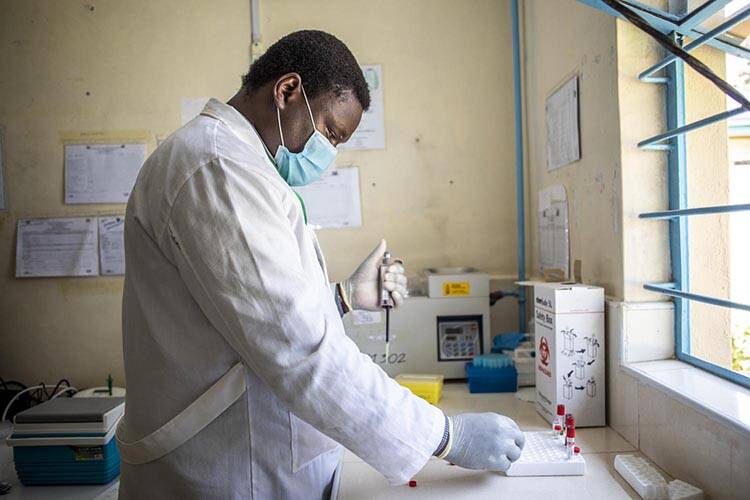
Several groups are especially vulnerable to schistosomiasis infection. Children, for example, like to play in the water and still need to build hygiene routines. Certain professions also carry an extra risk, such as farmers and fishermen, and women may be more exposed to infested water when performing household activities such as washing clothes.
Praziquantel is the recommended treatment against all forms of schistosomiasis. It is effective, safe, and low-cost. It is one of the instruments of WHO’s strategy for schistosomiasis control through large-scale treatment campaigns of at-risk population groups.
Schistosomiasis is an acute and chronic disease caused by parasitic worms. People are infected when they are exposed to infested water, where larval forms of the Schistosoma parasite released by freshwater snails penetrate the skin. In the body, the larvae develop into adult schistosomes that live in the blood vessels. When the females release their eggs, some leave the body in the faeces or urine and continue the parasite’s lifecycle.
Others become trapped in body tissues, causing immune reactions and progressive damage to organs. Intestinal schistosomiasis can result in abdominal pain, diarrhoea, blood in the stool and enlargement of the liver and spleen. A notable symptom of urogenital schistosomiasis is blood in the urine, and may ultimately lead to bladder cancer or infertility. Female Genital Schistosomiasis is a common, but underdiagnosed, complication resulting in gynaecological problems, as well as an association with increased HIV and HPV risk.
The freeBILy study consists of two clinical trials in two different endemic settings. The trial in Madagascar aims at demonstrating the usefulness of controlling intestinal schistosomiasis in pregnant women and young children by integrating the POC-CCA Test-Based-Schistosomiasis-Treatment (TBST) in routine maternal-child primary health care. In Gabon, a cross-sectional, prospective study is aimed at evaluating the accuracy of the UCP-LF-CAA test for the detection of urinary schistosomiasis in pregnant women and the evaluation of the efficacy of praziquantel treatment.
Project activities in the field commenced in Gabon and Madagascar in 2019. Recruitment of pregnant women and their newborns is complete in Madagascar and nearing completion in Gabon and follow-up will be finalised in the coming year. Capacity building and training in diagnostic techniques for helminths, applied epidemiology and mother-child public health care interventions for staff of the African and European centers has been successfully done and is continuously monitored and updated. Results are expected early 2023.
freeBILy: Rapid detection of schistosome infections
Control of schistosomiasis relies mainly on mass drug administration with praziquantel. Especially in low transmission areas (after years of advanced control programmes) there is an increasing need for accurate diagnostics to support more targeted strategies. Highly accurate diagnostics could ensure that vulnerable groups, such as pregnant women and young children, can receive the right treatment but are not unnecessarily exposed to praziquantel.
The freeBILy project consortium is geared towards contributing to the elimination of schistosomiasis through the development of fast and reliable easy-to-use-diagnostics for eliminating schistosomiasis in young children and mothers. The main objective of the project is to implement and evaluate the effectiveness of two circulating antigen tests to improve diagnosis in endemic field situations. The point-of-care POC-CCA test is good at detecting intestinal schistosomiasis but has lower sensitivity for urinary schistosomiasis. By contrast, the UCP-LF-CAA test is highly sensitive and specific but requires more advanced laboratory facilities.
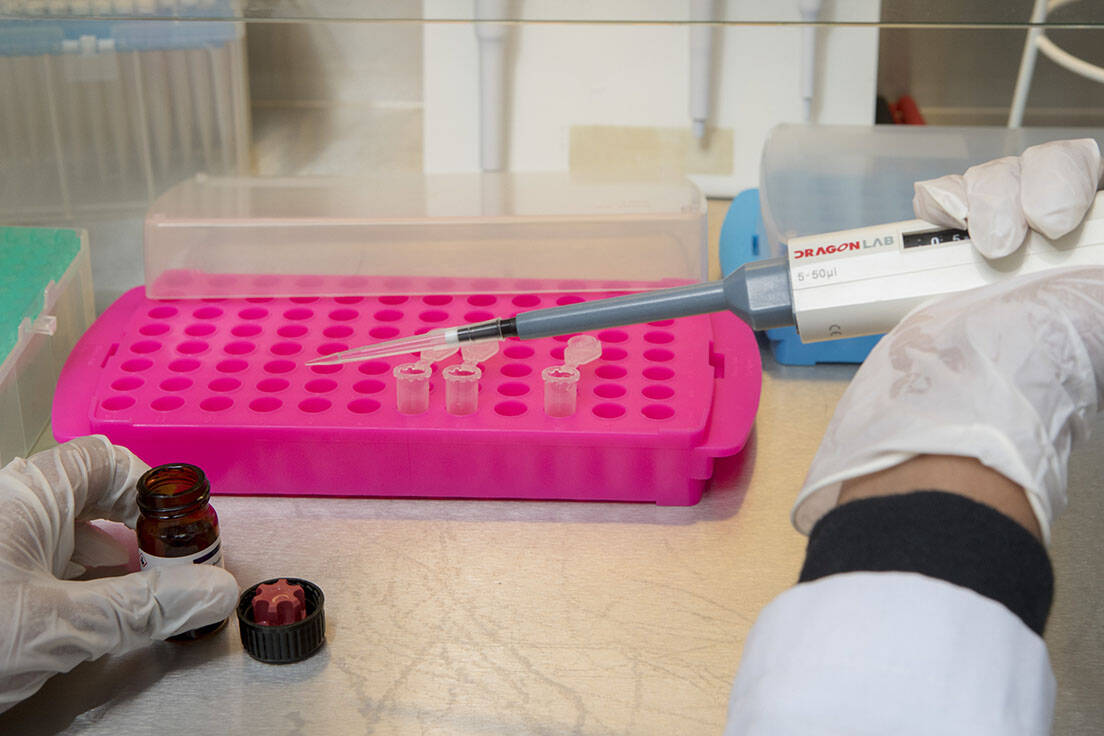
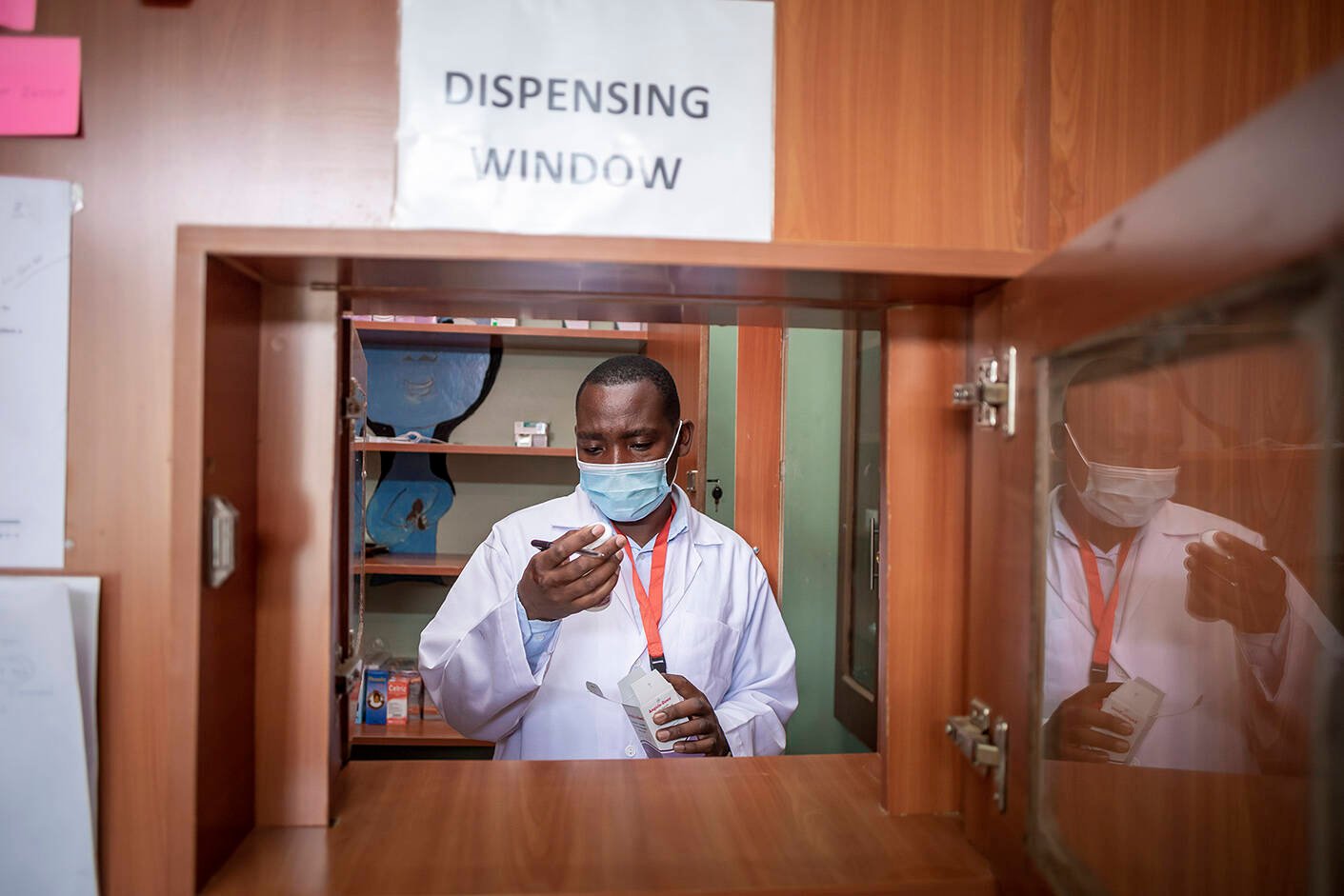
FibroScHot: Intensified prevention of schistosomiasis
Africa accounts for 90% of schistosomiasis cases, with children and young adults bearing the brunt of disease. Mass drug administration programmes with praziquantel have been the cornerstone of schistosome control efforts. However, despite good coverage, in transmission hotspots many children are still being infected and developing debilitating symptoms. Those with a characteristic pattern of fibrosis within the liver, called periportal fibrosis, can develop portal hypertension due to restricted blood flow into the liver.
The FibroScHot study is evaluating whether increasing the frequency of mass drug administration reduces the prevalence of liver fibrosis in hotspots of persistent schistosomiasis. A controlled trial in school-aged children compares the usual community campaigns with an intensified campaign. The study will thereby determine whether a readily implementable intervention, building on existing approaches to schistosomiasis control, protects more children against a common and potentially deadly neglected infectious disease. The approach would be practical to adopt in Uganda and other countries in which childhood schistosomiasis persists.
Alongside the trial medical anthropologists will examine the perceptions of the populations treated by the control programme, parasitologists specialising in population genetics and genomics will monitor any genetic changes in the parasite population occurring under increased treatment frequency, and immunologists will examine the underlying pathological mechanisms.
Enrolment into the FibroSchot trial has been completed in 2021, with the intended cohort of 600 children having been examined for infection levels and presence of periportal fibrosis. The treatment phase of the trial is ongoing, pathology and infection levels will be measured in 2023 to determine the success of the strategy.
The phase III trial confirmed a favourable efficacy and safety profile for arpraziquantel in children 3 months to 6 years of age and paved the way for submitting the regulatory file to the European Medicines Agency (EMA) for a scientific opinion through an ‘EU-Medicines for all’ or 'EU-M4all’ procedure. This procedure facilitates prequalification of the medicine by the World Health Organization (WHO) and registration in the target countries. Once approved, the product will be made available on a not-for-profit basis. Together with relevant stakeholders, the Consortium is exploring new procurement and business models, including local manufacturing, to ensure that the product is available free of charge to the young patients in need.
After safety studies in adults, a taste study in African children, and a phase II dosing study in PSAC, the product was assessed to be safe, effective, and well-tolerated and progressed to phase III. The pivotal phase III trial, conducted in Côte d'Ivoire and Kenya, was funded by EDCTP and the Global Health Innovative Technology Fund (GHIT Fund) with additional support from Merck and other Consortium partners. Kenya and Côte d'Ivoire were selected based on the evidence of a high prevalence of urogenital and intestinal schistosomiasis among young children, and other criteria, including local trial facility capabilities, as well as Principal Investigator and team experience with clinical trials. Both the Kenya Medical Research Institute (KEMRI) and the Université Félix Houphouet-Boigny (UFHB) were welcomed on board as Consortium partners.
We reached out to Dr Maurice Odiere, Head of the Neglected Tropical Diseases Unit at KEMRI, Kisumu, Kenya, about leading the phase III clinical trial in Kenya and the capacity that was built to conduct the study.
scroll down
The World Health Organization’s list of neglected tropical diseases includes 20 diseases caused by different pathogens that have diverse manifestations, life cycles, and methods of transmission. Amongst them is schistosomiasis, a parasitic disease causing significant health and economic impact. An estimated 90% of those requiring treatment for schistosomiasis live in Africa. EDCTP funds 12 projects on schistosomiasis diagnosis and treatment and on programmes to strengthen health systems by building better infrastructure for good clinical and regulatory practice. Results from an EDCTP-funded phase III clinical trial of arpraziquantel, a potential new pediatric medication to treat schistosomiasis, offer hope for an especially vulnerable group: preschool-age children.
Detecting and treating schistosomiasis: how projects and partners work together to protect the most vulnerable
scroll down
The phase III trial confirmed a favourable efficacy and safety profile for arpraziquantel in children 3 months to 6 years of age and paved the way for submitting the regulatory file to the European Medicines Agency (EMA) for a scientific opinion through an ‘EU-Medicines for all’ or 'EU-M4all’ procedure. This procedure facilitates prequalification of the medicine by the World Health Organization (WHO) and registration in the target countries. Once approved, the product will be made available on a not-for-profit basis. Together with relevant stakeholders, the Consortium is exploring new procurement and business models, including local manufacturing, to ensure that the product is available free of charge to the young patients in need.

“Using more advanced methods of diagnosis and disease mapping in schistosomiasis-endemic countries, it has become increasingly evident that large population groups at risk remain untreated resulting in continuing transmission and morbidity. Combining accurate and affordable diagnostic methods with the correct use of praziquantel in individuals who carry the highest risk is essential to further reduce the disease burden. In freeBILy, very young, preschool-age children were shown to carry schistosome infections requiring adequate treatment, for which the availability of a paediatric drug formulation would have been highly essential.”
— Dr Govert van Dam, freeBILy Project Coordinator
The freeBILy study consists of two clinical trials in two different endemic settings. The trial in Madagascar aims at demonstrating the usefulness of controlling intestinal schistosomiasis in pregnant women and young children by integrating the POC-CCA Test-Based-Schistosomiasis-Treatment (TBST) in routine maternal-child primary health care. In Gabon, a cross-sectional, prospective study is aimed at evaluating the accuracy of the UCP-LF-CAA test for the detection of urinary schistosomiasis in pregnant women and the evaluation of the efficacy of praziquantel treatment.
Project activities in the field commenced in Gabon and Madagascar in 2019. Recruitment of pregnant women and their newborns is complete in Madagascar and nearing completion in Gabon and follow-up will be finalised in the coming year. Capacity building and training in diagnostic techniques for helminths, applied epidemiology and mother-child public health care interventions for staff of the African and European centers has been successfully done and is continuously monitored and updated. Results are expected early 2023.
freeBILy: Rapid detection of schistosome infections
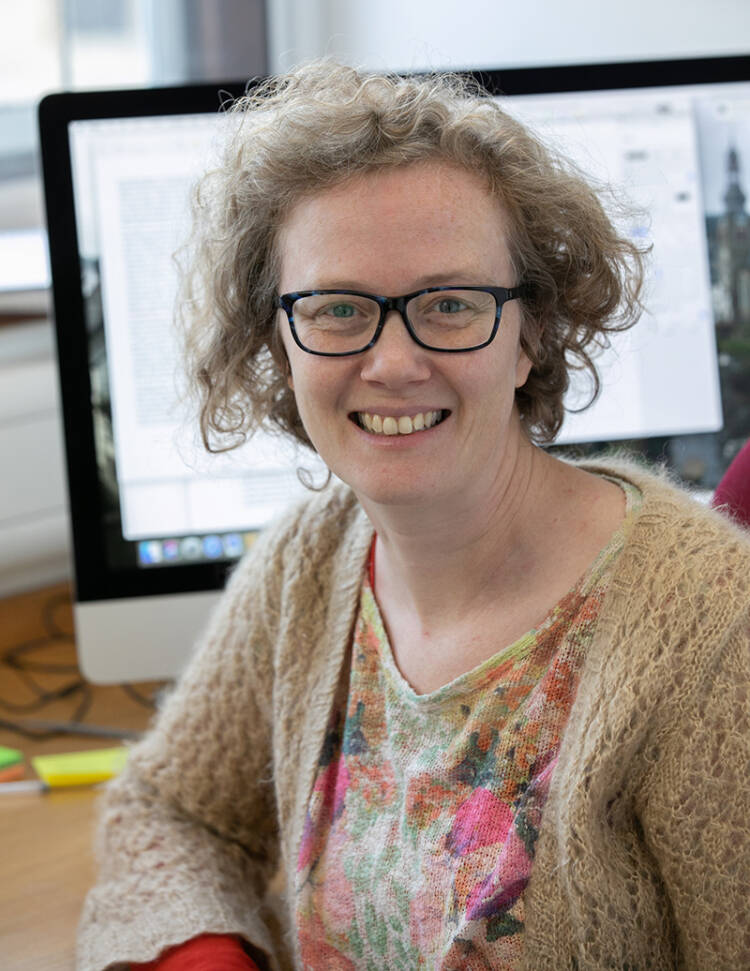
“Despite many years of treatment-based disease control implementation, there remain areas of dangerously high schistosomiasis transmission. By the time children access school-age praziquantel treatment programmes, the burden of infection can easily surpass levels that leave them vulnerable to subtle, life-chance altering morbidities, and with time, life threatening severe schistosomiasis. The potential new praziquantel paediatric formulation provides us with an extremely important tool with which to halt the progress of schistosomiasis amongst the youngest members of these communities; one to be used alongside enhanced school-based strategies, such as those being investigated by FibroScHot, and wider community strategies.”
— Dr Shona Wilson, FibroScHot Project Coordinator
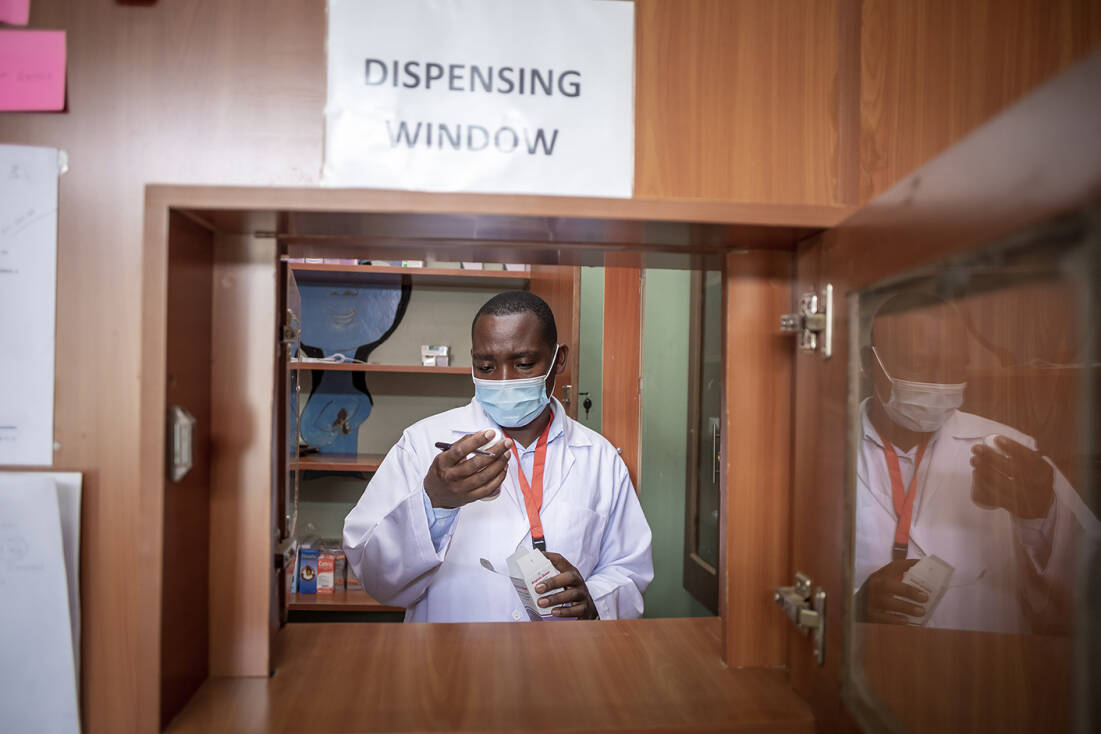
FibroScHot: Intensified prevention of schistosomiasis
Africa accounts for 90% of schistosomiasis cases, with children and young adults bearing the brunt of disease. Mass drug administration programmes with praziquantel have been the cornerstone of schistosome control efforts. However, despite good coverage, in transmission hotspots many children are still being infected and developing debilitating symptoms. Those with a characteristic pattern of fibrosis within the liver, called periportal fibrosis, can develop portal hypertension due to restricted blood flow into the liver.
The FibroScHot study is evaluating whether increasing the frequency of mass drug administration reduces the prevalence of liver fibrosis in hotspots of persistent schistosomiasis. A controlled trial in school-aged children compares the usual community campaigns with an intensified campaign. The study will thereby determine whether a readily implementable intervention, building on existing approaches to schistosomiasis control, protects more children against a common and potentially deadly neglected infectious disease. The approach would be practical to adopt in Uganda and other countries in which childhood schistosomiasis persists.
Alongside the trial medical anthropologists will examine the perceptions of the populations treated by the control programme, parasitologists specialising in population genetics and genomics will monitor any genetic changes in the parasite population occurring under increased treatment frequency, and immunologists will examine the underlying pathological mechanisms.
Enrolment into the FibroSchot trial has been completed in 2021, with the intended cohort of 600 children having been examined for infection levels and presence of periportal fibrosis. The treatment phase of the trial is ongoing, pathology and infection levels will be measured in 2023 to determine the success of the strategy.
Through its neglected infectious disease portfolio, EDCTP has awarded € 14.89 million to support 12 projects on schistosomiasis. Development of drugs and diagnostics is a priority, along with strengthening health systems. Several projects focus on or include preschool-age children, including:

Head of R&D and Access, Global Health Institute, Merck
Dr Béatrice Greco

Principal Investigator of the phase III clinical trial in Kenya
Dr Maurice Odiere
In this video, Dr Benjamin Dälken, Senior Director, Global Program Lead Immunology & Global Health at Merck, and Global Program Lead of the Pediatric Praziquantel Consortium, reflects on the progress made over the last year for the Consortium, particularly in terms of the clinical strategy and development plan, and summarizes the key steps moving forward.

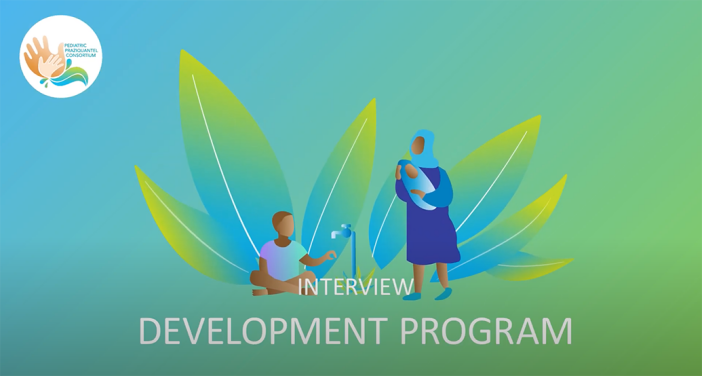

Through its five-year ADOPT programme, funded by EDCTP and the GHIT Fund, the Consortium aims to identify approaches to ensure widespread acceptance and equitable access to its pediatric treatment across endemic countries. To this end, the programme considers aspects ranging from social mobilisation and acceptance by the communities, to the assessment of existing drug delivery strategies and setting up monitoring and evaluation frameworks. The ADOPT programme will provide evidence on feasibility, acceptability, costs, efforts and impact associated with the new paediatric treatment. Country leadership will be key to the success of this programme, as the national Ministries of Health will lead the implementation programmes, thus linking to the WHO Roadmap for neglected tropical diseases 2021-2030, promoting country ownership.
We asked Dr Beatrice Greco, Head of R&D and Access at Merck’s Global Health Institute and member of the Pediatric Praziquantel Consortium Access team, about the consortium’s innovative approach to ensure equitable access to its treatment for preschool-age children.
After safety studies in adults, a taste study in African children, and a phase II dosing study in PSAC, the product was assessed to be safe, effective, and well-tolerated and progressed to phase III. The pivotal phase III trial, conducted in Côte d'Ivoire and Kenya, was funded by EDCTP and the Global Health Innovative Technology Fund (GHIT Fund) with additional support from Merck and other Consortium partners. Kenya and Côte d'Ivoire were selected based on the evidence of a high prevalence of urogenital and intestinal schistosomiasis among young children, and other criteria, including local trial facility capabilities, as well as Principal Investigator and team experience with clinical trials. Both the Kenya Medical Research Institute (KEMRI) and the Université Félix Houphouet-Boigny (UFHB) were welcomed on board as Consortium partners.
We reached out to Dr Maurice Odiere, Head of the Neglected Tropical Diseases Unit at KEMRI, Kisumu, Kenya, about leading the phase III clinical trial in Kenya and the capacity that was built to conduct the study.
WHO recommends large-scale treatment of preschool-age children (PSAC), who are a high-risk group for schistosomiasis. However, to date, no suitable paediatric medication is available to treat this group of patients. Currently available praziquantel tablets can be crushed but dosing is a problem, and the bitter taste of the product makes it very difficult for preschool-age children to swallow. Recent results from an EDCTP-funded phase III clinical trial of arpraziquantel, a potential new paediatric treatment option for schistosomiasis, offers hope for this particularly vulnerable group.
The Pediatric Praziquantel Consortium, a not-for-profit international public-private partnership, set out to develop, register and make available a potential new drug, arpraziquantel (a single-dose orally disintegrating tablet (ODT) 150 mg formulation), that could be used to treat the estimated 50 million preschool-age children suffering from schistosomiasis. This is a groundbreaking initiative on multiple levels, using an innovative Research & Development operating model, and advanced technologies in all aspects of product development and delivery – from chemistry to clinical trials and manufacturing, and from registration to access and implementation.
Partnering to treat schistosomiasis in preschool-age children
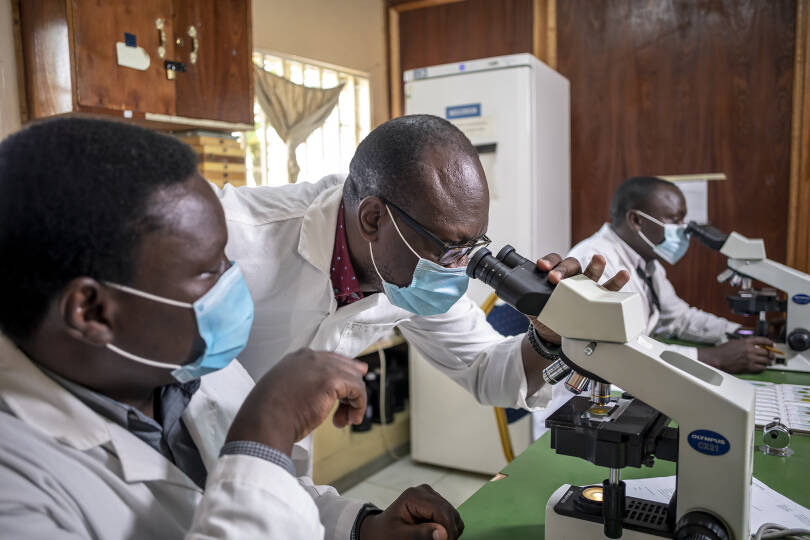
Schistosomiasis is an acute and chronic disease caused by parasitic worms. People are infected when they are exposed to infested water, where larval forms of the Schistosoma parasite released by freshwater snails penetrate the skin. In the body, the larvae develop into adult schistosomes that live in the blood vessels. When the females release their eggs, some leave the body in the faeces or urine and continue the parasite’s lifecycle.
Others become trapped in body tissues, causing immune reactions and progressive damage to organs. Intestinal schistosomiasis can result in abdominal pain, diarrhoea, blood in the stool and enlargement of the liver and spleen. A notable symptom of urogenital schistosomiasis is blood in the urine, and may ultimately lead to bladder cancer or infertility. Female Genital Schistosomiasis is a common, but underdiagnosed, complication resulting in gynaecological problems, as well as an association with increased HIV and HPV risk.
Several groups are especially vulnerable to schistosomiasis infection. Children, for example, like to play in the water and still need to build hygiene routines. Certain professions also carry an extra risk, such as farmers and fishermen, and women may be more exposed to infested water when performing household activities such as washing clothes.
Praziquantel is the recommended treatment against all forms of schistosomiasis. It is effective, safe, and low-cost. It is one of the instruments of WHO’s strategy for schistosomiasis control through large-scale treatment campaigns of at-risk population groups.
The World Health Organization’s list of neglected tropical diseases includes 20 diseases caused by different pathogens that have diverse manifestations, life cycles, and methods of transmission. Amongst them is schistosomiasis, a parasitic disease causing significant health and economic impact. An estimated 90% of those requiring treatment for schistosomiasis live in Africa. EDCTP funds 12 projects on schistosomiasis diagnosis and treatment and on programmes to strengthen health systems by building better infrastructure for good clinical and regulatory practice. Results from an EDCTP-funded phase III clinical trial of arpraziquantel, a potential new pediatric medication to treat schistosomiasis, offer hope for an especially vulnerable group: preschool-age children.

